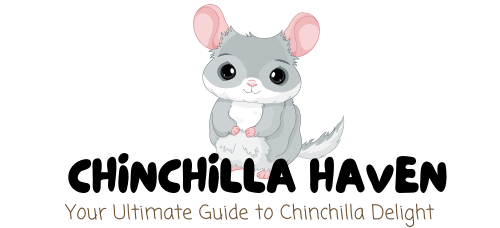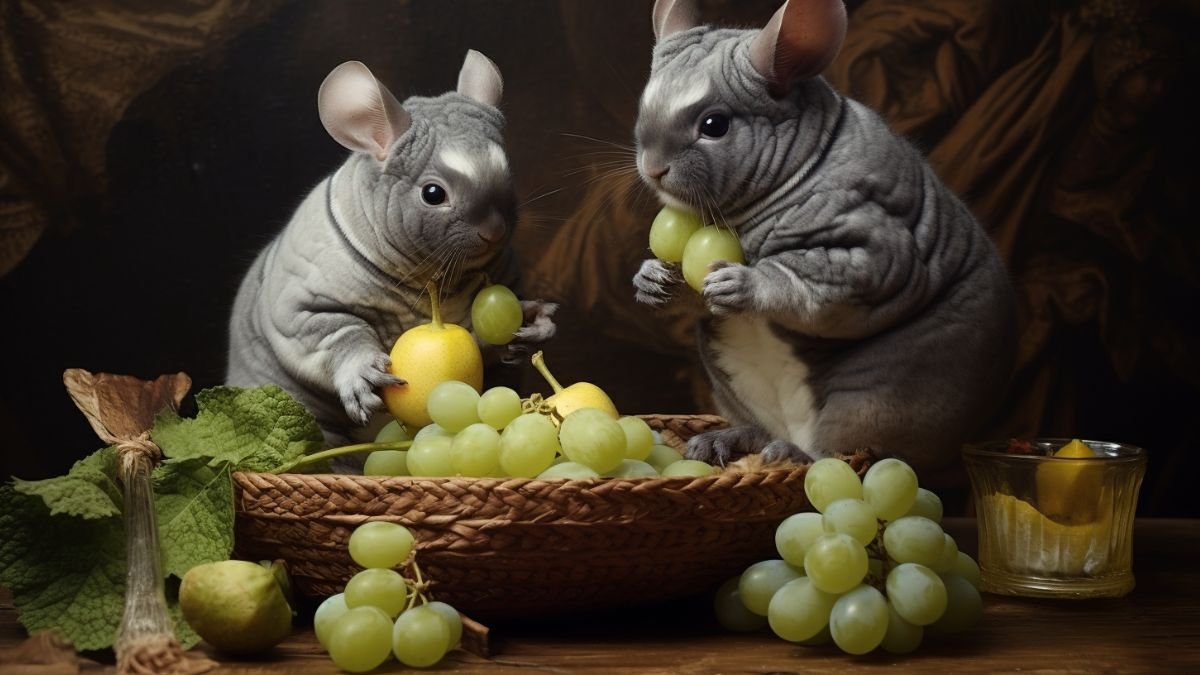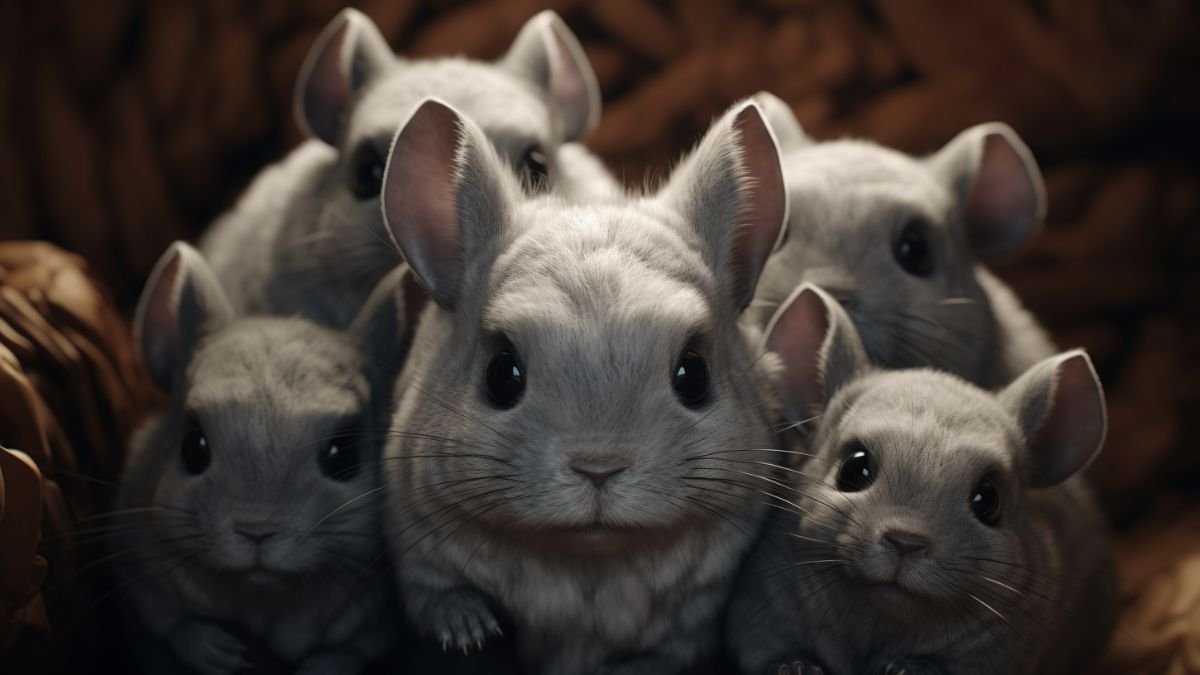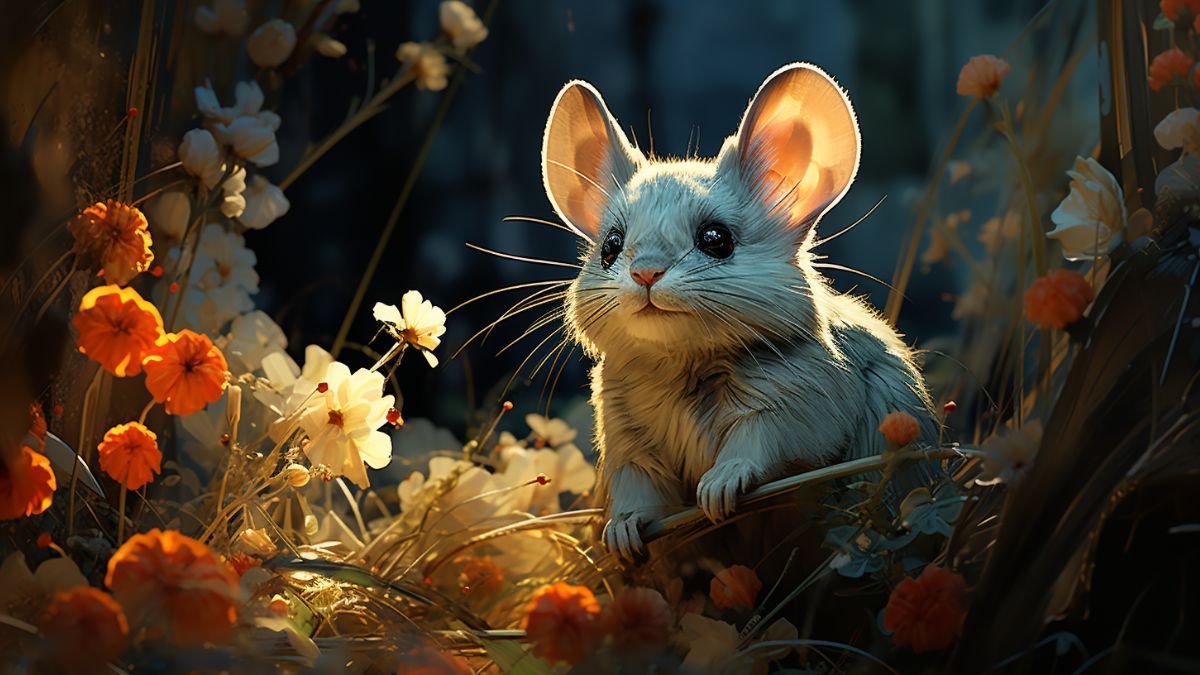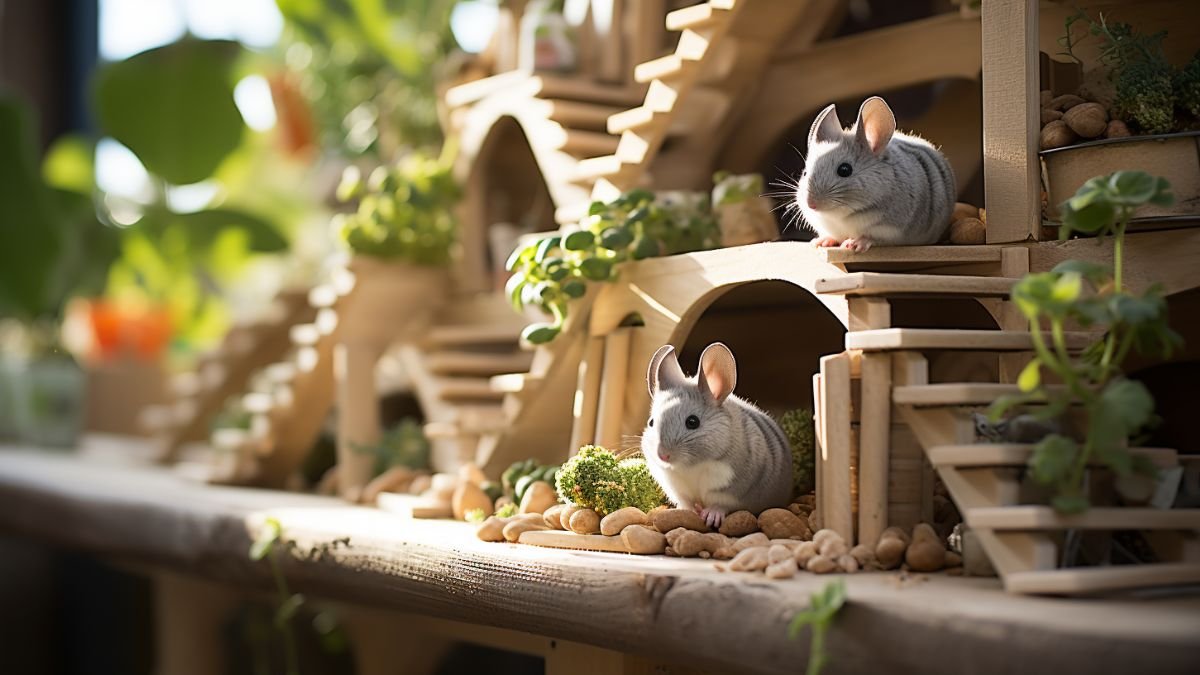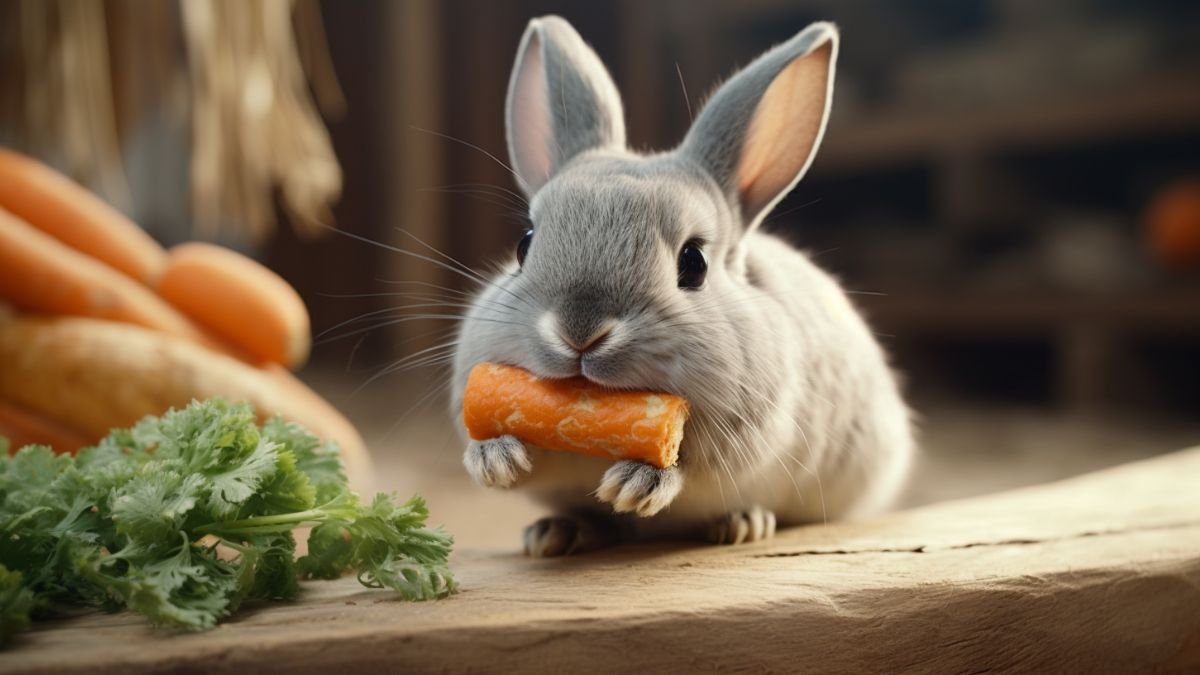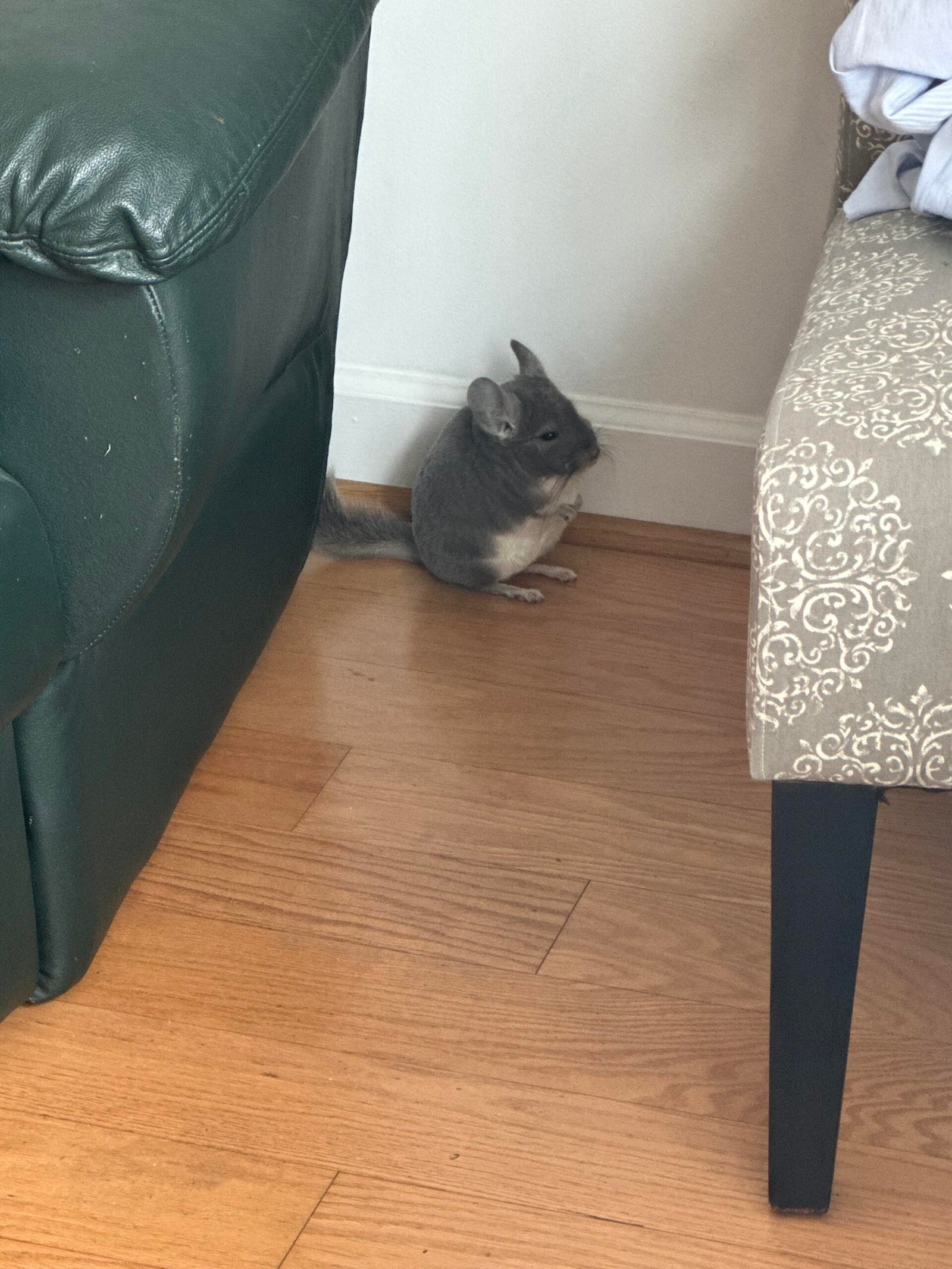Are you wondering if kale is a safe and healthy snack for your chinchilla? You want to give your furry friend the best, but it’s hard to know which greens are good for them.
Kale is popular in many diets, but can your chinchilla eat it without any risks? Keep reading to discover the truth about feeding kale to your chinchilla and how it can affect their health. This simple knowledge could make a big difference in your pet’s happiness and well-being.
Chinchilla Diet Basics
Chinchillas need a special diet to stay healthy and active. Their digestive system is very sensitive. They require food high in fiber and low in fat. This helps keep their gut working well.
Fresh water should always be available. A chinchilla’s diet mainly consists of hay and pellets made for chinchillas. These provide the right nutrients and fiber. Treats and fresh foods must be given carefully and in small amounts.
Hay As The Main Food
Hay is the most important part of a chinchilla’s diet. It keeps their teeth worn down and helps digestion. Timothy hay is the best choice. It is safe and nutritious for chinchillas.
Pellets For Nutrients
Pellets made for chinchillas provide balanced nutrition. They contain fiber, protein, and vitamins. Avoid pellets with added seeds or nuts. These can cause health problems.
Fresh Vegetables And Fruits
Fresh vegetables and fruits are treats, not main food. They have water and sugars that can upset the stomach. Give small amounts only once or twice a week. Introduce new foods slowly to watch for reactions.
Foods To Avoid
Avoid foods high in fat, sugar, or moisture. Chocolate, nuts, and sugary snacks are harmful. Also, do not feed them iceberg lettuce or onions. These can cause serious health issues.
Nutritional Profile Of Kale
Kale is a leafy green vegetable packed with many nutrients. It offers a variety of vitamins and minerals that support health. For chinchillas, understanding kale’s nutrients helps decide if it is suitable as a treat.
Chinchillas need a balanced diet rich in fiber and low in fat and sugar. Kale contains valuable nutrients but also some compounds that require careful feeding. Let’s explore kale’s nutritional profile to see its benefits and limits for chinchillas.
Vitamins In Kale
Kale is rich in vitamin A, essential for good vision and skin health. It also contains vitamin K, which helps blood clot properly. Vitamin C is present but in smaller amounts, supporting the immune system.
Minerals In Kale
Kale provides calcium, important for strong bones and teeth. It also has potassium and magnesium, which help muscle function. Iron is in kale too, aiding oxygen transport in the blood.
Fiber Content
Kale has a good amount of fiber, which supports digestion. Fiber helps chinchillas maintain a healthy gut. However, too much fiber from leafy greens can upset their stomach.
Oxalates And Other Compounds
Kale contains oxalates that may bind calcium and reduce absorption. High oxalate intake can cause kidney problems in chinchillas. Feeding kale in small amounts lowers this risk.
Caloric And Fat Content
Kale is very low in calories and fat. This makes it a light snack for chinchillas. It will not add extra weight or cause digestive issues if given sparingly.
Kale’s Benefits For Chinchillas
Kale offers several nutrients that can support chinchilla health. It contains vitamins and minerals essential for their well-being. Feeding kale in small amounts can be part of a balanced diet.
Chinchillas need fiber for good digestion. Kale has fiber that helps keep their digestive system working well. This vegetable also provides antioxidants that protect their cells.
Rich Source Of Vitamins
Kale provides vitamin A, important for eye health and skin. It also contains vitamin K, which helps with blood clotting. These vitamins support the immune system and overall health.
High In Fiber
Fiber in kale aids digestion and prevents constipation. It helps chinchillas process their food better. A healthy gut means a happier, more active pet.
Contains Important Minerals
Kale has calcium and magnesium needed for strong bones. These minerals support teeth health, crucial for chinchillas. A balanced mineral intake helps avoid health problems.
Antioxidant Properties
Antioxidants in kale protect cells from damage. They help reduce inflammation and boost immunity. This keeps chinchillas healthier and more energetic.
Potential Risks Of Feeding Kale
Feeding kale to chinchillas has some risks. Kale contains substances that may harm their health. It is important to know these risks before offering kale to your pet.
Kale has high levels of oxalates. These can cause kidney problems in chinchillas. Oxalates bind with calcium and reduce its absorption. This can lead to calcium deficiency and weak bones.
Another concern is the fiber content. Kale has a lot of fiber, which chinchillas need. But too much fiber at once can cause digestive upset. It may lead to diarrhea or gas, which is harmful to chinchillas.
Some chinchillas may also have allergies or sensitivities to kale. This could cause skin irritation or stomach pain. Watch your pet closely when giving kale for the first time.
Oxalate Content And Kidney Health
Kale has a high amount of oxalates. Oxalates can harm chinchilla kidneys over time. They reduce calcium absorption and cause mineral imbalance. This makes bones weak and fragile.
Digestive Issues From Excess Fiber
Chinchillas need fiber for digestion. Too much fiber can upset their stomachs. This may cause gas, bloating, or diarrhea. Feed kale in small amounts only.
Possible Allergic Reactions
Some chinchillas react badly to new foods. Kale can cause allergies or stomach pain. Stop feeding kale if you see any signs of discomfort.
Safe Serving Sizes
Chinchillas can enjoy kale, but portion control is key. Serving the right amount keeps them healthy and happy. Too much kale may cause stomach troubles or digestive issues. Small, measured servings work best to avoid problems.
Recommended Daily Amount
Offer no more than one to two small leaves per day. This amount provides nutrients without overloading their system. Fresh kale should be washed well and cut into bite-size pieces.
Introducing Kale Gradually
Start with a tiny piece to check for any reaction. Watch your chinchilla closely for any signs of discomfort. Increase the amount slowly over several days if no issues appear.
Frequency Of Serving Kale
Serve kale only two or three times per week. This schedule keeps their diet balanced and prevents overfeeding. Rotate kale with other safe vegetables for variety.
How To Introduce Kale
Introducing kale to your chinchilla’s diet requires care and patience. Kale is rich in vitamins but can upset their stomach if given too fast. Start slowly and watch for any signs of discomfort or allergies.
Offer a small piece of fresh kale first. Observe how your chinchilla reacts before giving more. This helps your pet get used to the new food safely.
Start With Small Portions
Give only a tiny piece of kale at first. A leaf about the size of a fingernail works well. This prevents any digestive issues and helps your chinchilla adjust.
Observe Your Chinchilla’s Reaction
Check if your pet eats the kale or avoids it. Look for signs of diarrhea or bloating. Stop feeding kale if your chinchilla shows any problems.
Gradually Increase The Amount
After a few days, offer a slightly larger piece. Increase the portion slowly over one to two weeks. Keep watching for any health changes during this time.
Mix Kale With Other Vegetables
Combine kale with safe veggies like carrot or cucumber. This makes the diet more varied and interesting. It also reduces the risk of overfeeding kale alone.
Alternatives To Kale
Chinchillas need fresh greens to stay healthy and happy. Kale is one option, but many pet owners seek other safe choices. Offering a variety of leafy greens helps keep their diet balanced and interesting.
Here are some good alternatives to kale that chinchillas can enjoy. These options provide nutrients without harming your furry friend.
Romaine Lettuce
Romaine lettuce is crisp and mild. It offers hydration and fiber with low calories. Chinchillas usually like its crunchy texture. Always wash leaves well before feeding.
Green Leaf Lettuce
Green leaf lettuce is soft and easy to digest. It adds a fresh taste to your chinchilla’s diet. This lettuce contains vitamins A and K, important for health.
Dandelion Greens
Dandelion greens are safe and nutritious. They help digestion and support the immune system. Only feed fresh, pesticide-free greens to avoid harm.
Carrot Tops
Carrot tops are tasty and rich in fiber. They provide vitamins and minerals that chinchillas need. Feed in small amounts to avoid stomach upset.
Parsley
Parsley is flavorful and packed with nutrients. It contains antioxidants and vitamins beneficial for chinchillas. Use sparingly as a treat or supplement.
Signs Of Dietary Issues
Chinchillas need a balanced diet to stay healthy. Signs of dietary issues can appear quickly. Spotting these signs early helps prevent serious problems. Watch your chinchilla closely for changes in behavior or health.
Diet problems might show in many ways. Some signs are easy to miss. Knowing what to look for keeps your pet safe and happy.
Changes In Eating Habits
A sudden drop in appetite is a warning sign. Your chinchilla may stop eating kale or other foods. Eating less can cause weakness. Monitor their food intake daily.
Digestive Problems
Loose stools or diarrhea suggest digestion troubles. Constipation is another red flag. Both can result from an improper diet. Check your chinchilla’s litter box often.
Weight Loss
Unexplained weight loss signals a dietary issue. Use a small scale to track weight weekly. Losing weight quickly needs veterinary attention.
Behavioral Changes
A sick chinchilla may become less active. Look for signs of lethargy or irritability. These changes often link to poor nutrition.
Coat And Skin Condition
Dull fur or hair loss can indicate poor diet. Healthy chinchillas have thick, shiny coats. Check their fur regularly for changes.
Tips For Balanced Nutrition
Providing balanced nutrition is key to keeping chinchillas healthy and happy. Their diet must include a variety of foods to meet all their needs. Kale can be part of their diet but only in small amounts.
Too much kale can cause digestive problems for chinchillas. Offering the right mix of vegetables, hay, and pellets ensures they get the right nutrients. Careful portion control and variety are important to avoid health issues.
Moderate Kale Portions
Give kale in small amounts only. A tiny leaf once or twice a week is enough. Large amounts can upset their stomach or cause diarrhea. Monitor your chinchilla after feeding kale to see how it reacts.
Include High-quality Hay
Hay is the main food for chinchillas. It provides fiber to keep their digestion working well. Timothy hay is a great choice. Always keep fresh hay available every day.
Use Pellets For Extra Nutrients
Pellets contain vitamins and minerals chinchillas need. Pick pellets made for chinchillas, not rabbits or guinea pigs. Feed pellets in measured amounts to avoid obesity.
Offer Other Veggies Sparingly
Besides kale, feed other safe vegetables in small portions. Carrots, dandelion greens, and parsley are good options. Avoid sugary or starchy vegetables that can harm your pet.
Fresh Water Always Available
Fresh water must be available all the time. Change water daily to keep it clean. Proper hydration supports digestion and overall health.
Frequently Asked Questions
Can Chinchillas Safely Eat Kale Leaves?
Yes, chinchillas can eat kale leaves in small amounts as a treat, not daily.
How Often Can Chinchillas Eat Kale?
Offer kale to chinchillas once or twice a week to avoid digestive issues.
Is Kale Good For Chinchillas’ Health?
Kale provides vitamins but too much can cause stomach problems for chinchillas.
What Parts Of Kale Are Safe For Chinchillas?
Chinchillas should only eat fresh, clean kale leaves, not stems or flowers.
Can Kale Cause Health Problems In Chinchillas?
Too much kale can cause gas, diarrhea, or upset stomach in chinchillas.
How Should Kale Be Prepared For Chinchillas?
Wash kale thoroughly and serve in small, bite-sized pieces for chinchillas.
Can Baby Chinchillas Eat Kale?
Baby chinchillas should avoid kale until their digestive system is stronger.
What Are Good Alternatives To Kale For Chinchillas?
Try feeding chinchillas hay, timothy grass, and safe leafy greens like romaine lettuce.
Conclusion
Kale can be a healthy treat for chinchillas in small amounts. It contains vitamins that support their health and energy. Avoid giving too much kale to prevent digestive issues. Always wash the leaves well before offering them. Variety is key in a chinchilla’s diet for balance.
Fresh hay and water should remain their main food. Watch your pet closely after trying new foods. Healthy choices keep your chinchilla happy and active. Simple care makes a big difference in their life.
